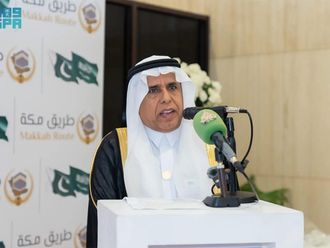
Islamabad: President Dr Arif Alvi on Sunday signed two ordinances - Prevention of Electronic Crimes Act (PECA) and Election Commission Act (Amendment in Code of Conduct) - which were approved by the Federal Cabinet a day earlier and were sent to the President House for his final nod.
Under the PECA amended ordinance, defaming an individual (a company, association, state institution or authority) on social media would be a punishable offence and courts would be obliged to decide them within six months. A complaint can be lodged by the aggrieved party, his/her guardian or representative.
The Election Act dealing with the Election Commission’s Code of Conduct paves the way for ministers and parliamentarians to run election campaigns of their party candidates across the country. They can now visit election rallies, address the public and run the campaign for the candidate of their choice or of their party.
Earlier, it was disallowed by the ECP and recently, the Election Commission had taken action against a number of the ruling Pakistan Tehreek-e-Insaf (PTI) ministers and members of the Parliament for running the election campaign of their party’s candidates.
Pakistan People’s Party (PPP) Chairperson Bilawal Bhutto Zardari was also fined by the ECP, which was later withdrawn over his unconditional apology.
Non-bailable offence
Under the PECA amended ordinance, spreading fake news would be a non-bailable offence and the accused, if found guilty, will face five-year imprisonment. Earlier, the duration was three years.
Addressing a press conference on Sunday in Karachi, Federal Minister for Law and Justice Barrister Farogh Naseem said the PECA was amended to stop spreading fake news and hate speech content on electronic and social media platforms.
Farogh Naseem said PECA and Election Act have been amended and promulgated by the President.
The minister ruled out the impression of curbs on media and added that the government believed in freedom of expression but at the same time it expected that only fact-based news is aired/posted on social media.
A day earlier, Minister of Information Fawad Chaudhry had also hinted at introducing the amended PECA Ordinance 2016 and Election Act saying under the new law, defaming individuals on social media would be declared a punishable offence and courts would be obliged to give a verdict on cases registered under PECA within six months.
If a judge is unable to decide a case within the prescribed time period (six months) under the PECA ordinance, he/she will be answerable to high court, Fawad Chaudhry further said.
The PECA was passed by the National Assembly in 2016 amid the opposition’s protest.
The legislation stated that parody or satire-based websites and social media accounts can be proceeded against on ‘spoofing’, which makes it an offence to run a website or send information with a “counterfeit source”. It also authorised Federal Investigation Agency (FIA) officers to unlock any computer, mobile phone or other device that may be required for the purpose of investigating a crime or offence, and said that defamation would be treated as a punishable offence.
Opposition denounces new ordinances
Pakistan’s main opposition political party Pakistan People’s Party (PPP) has opposed promulgation of the PECA (Amended) and the Election Act saying it would restrict freedom of expression.
Senator Raza Rabbani of the PPP in a statement said promulgation of ordinance infringed on the supremacy of the Parliament.
Senator Sazia Atta Marri of the PPP was of the view that even the President could not amend/change the Election Commission’s Code of Conduct. This is only the ECP’s prerogative, she said in a statement.












